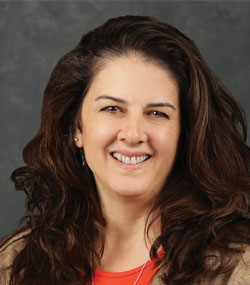
As we know, real life does not always answer back with the same expectations. A few decades ago, our farm checking account was hacked. Thankfully, I balance the checkbook regularly and it was caught quickly. However, we still had to shut down our account, start a new one, and keep an eye on outstanding transactions. As far as I know, they never caught the clever swindlers, and they got away with nearly $4,000.
That was my first experience with fraud. Although it was infuriating that someone found a loophole in our account, the incident happened far from our farm, and other than their desire to take our money, there was not a personal connection.
Today, fraud is commonplace. The number of texts, emails, and online ads that are before us on a daily basis is unnerving to say the least. It seems that someone is constantly trying to trick me into giving out my personal information. Thank God we have our animals to retreat to for sanity and clarity.
Our cows are not typically known for fraudulent behavior. However, I do recall a young calf that was masterful at tricking me into thinking she was skipped when I was feeding milk. She would drink her milk and her bottle would be collected, but a few minutes later she would prance around her hutch bawling like she had not had milk in weeks. I fell for her scam more than once and, as a result, she enjoyed a second bottle.
The fraud we usually see on farms is in computer programing or on the financial end. The first time I heard about bitcoin was when a dairy farmer friend from Arizona was hacked. His farm computer was sabotaged, and he had to pay in bitcoin to get back all of his dairy’s information.
This type of behavior is so frustrating to me because as a culture, we live life honestly, purely, and are hard working. We do not spend our hours figuring out how to trick someone else out of their hard-earned money. We are just trying to make an honest living ourselves and don’t have our eyes and ears focused on people who are out to get their hands on our pennies. On the flip side, we are a group of people who are high on the trust barometer with our friends, neighbors, and consumers.
The reality of scamming came front and center for me when I heard of embezzlement that was happening at the farm gate as opposed to online or in bank accounts. A farming friend shared with me that someone was driving past their farms, stealing letters out of mailboxes, and either cashing the checks with false identification or copying the check information to create their own check with the exact amount.
This farmer had paid his bills and put the envelopes in their farm mailbox. A few weeks later, he found out that the checks did not reach their destination. Instead, they were taken from the mailbox, reproduced, and his bank account was depleted to an unknown source.
The good news is, the farmer caught it early enough that it was covered by insurance and they were still able to pay the proper businesses. However, the stress and time needed to rectify the problem was ridiculous, let alone the fact that someone got away with a wagon load of money.
When Chip told me about this, my first reaction was disbelief. Who has time to think up this stuff?
My second reaction is that the perpetrator needs a real job with long hours, like forking out a heifer pen, scraping the barnyard, or sorting cows. They need to start the workday before sunrise and end after sunset. They need to earn an honest day’s wage that means more than just money in the bank. They need to experience a genuine feeling of accomplishment.
Obviously, I do not understand the mind of a scamming criminal who makes a living out of stealing from others. It is a lifestyle I am glad I do not need to defend.
I know that having a trusting character does not guarantee that scams don’t get through to us. I am determined not to swallow the pill of mistrust that looks for conspiracy down every country road.
I just need to understand that the two-way road of trust is narrow in some areas. I need to be aware and diligent and put precautions in place that protect our character, our values, and the farm bank account.








